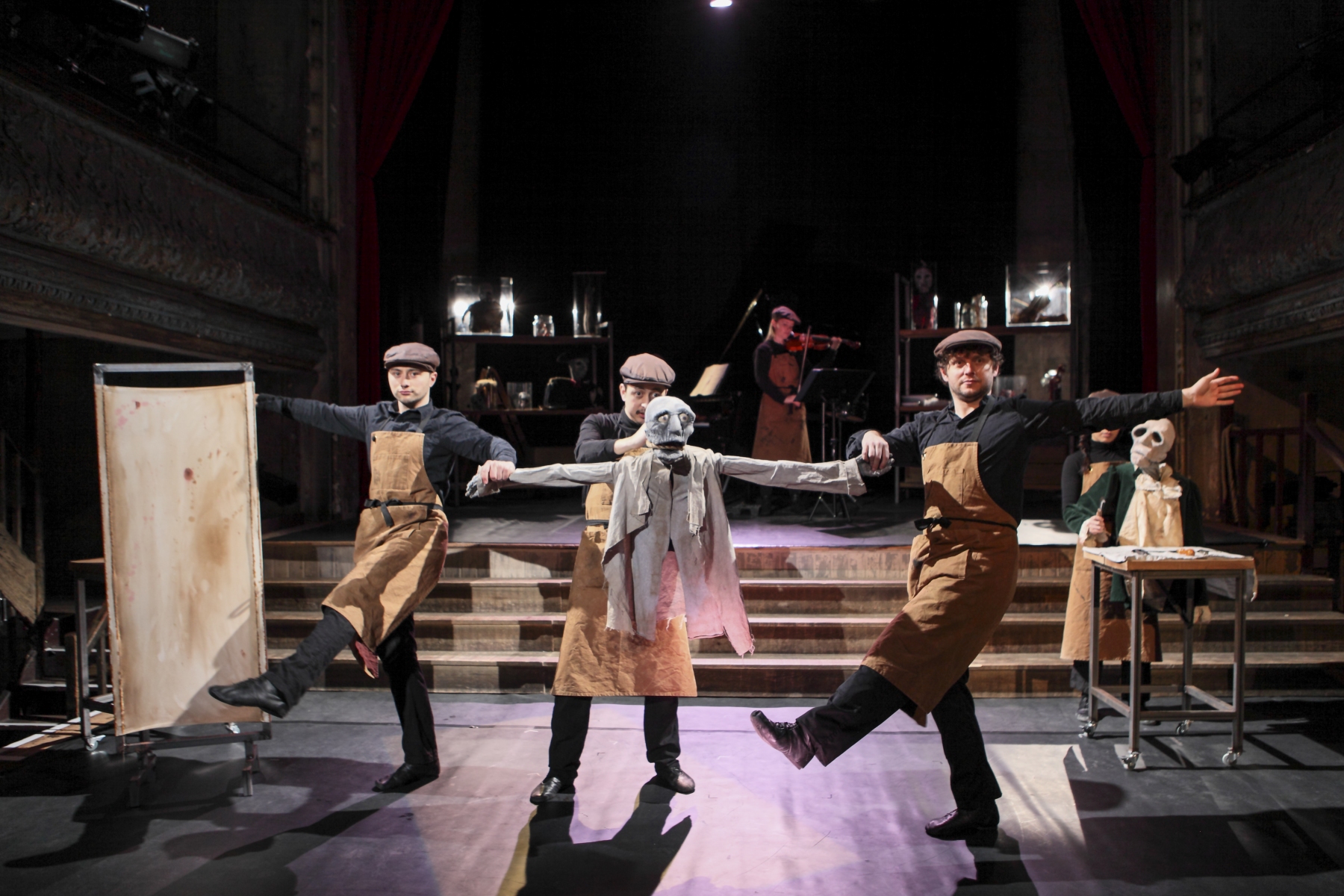The Gothic title is a good clue to the gruesomeness within this chamber opera by Bristolian puppetry company Wattle & Daub. It remembers Tarrare, a human curio from the fringes of cultural memory. He was a polyphagic, a man of prodigious appetite for anything and everything – live animals, stones, metal objects, and, it is suggested, human body parts – who disgusted and bemused French society in equal measure around the time of the Revolution. In a short, sad life, he was paraded in a freak show, pressed to work for the revolutionary army, and became a living experiment for the medical profession who couldn’t believe what they were seeing.
The puppets, animated by a small cast in workshop outfits of flat caps and aprons, are haunted, grey grotesques. All hollow-eyed except for the title character, whose bulging eyeballs and permanently startled face give him the look of a little boy lost – an innocent abroad, winsome in the audience’s eyes, despite his freakish nature.
We’re not the only ones won over. In a strange kind of love story, Celeste, one of a pair of conjoined twin sisters who perform at the same freak-show as Tarrare, takes a shine to him, seeing in him a humanity no-one else does. Dr Percy, the man who treats him, is also taken with him, beyond mere intellectual curiosity. He’s repulsed by Tarrare’s actions and subjects him to some horrific treatments, yet still exhibits sympathy and a frustration that he isn’t able to do more.
These puppets are striking, but even more so are the singers that voice them – Michael Longden and Daniel Harlock – who exhibit incredible range and versatility. Longden’s soprano turn for conjoined twin Celeste’s love song is especially affecting, yet he’s also able to drop octaves lower to play the Doctor. Under direction by Sita Calvert-Ennals, co-writer Tobi Poster-Su does a grand job animating Tarrare’s regurgitations and post-prandial panting, with Aya Nakamura lending the Doctor a world-weary physicality to match Longden’s sorrowful voice.
Reading the background subsequently, the play’s a fairly faithful reproduction of the known historical facts, albeit perhaps less gross than the reality (even though it’s pretty gross in itself). The limitations of 18th century medicine are illustrated in macabre operating table scenes; the barbarism of parading “freaks” for public spectacle is implied via Celeste and Tarrare’s tender moments.
The sung dialogue is fairly uncomplicated: Tarrare’s condition defeated the medical profession then, and no lightbulb moment is proffered here. He just “wants to be full”. It’s played as straight historical curiosity too, without overt contemporisation of its themes.
Originally shown as a work-in-progress in 2012, The Depraved Appetite of Tarrare the Freak premiered in 2015 and toured in 2017. It translates well to screen, although there is some loss of atmosphere is to be expected in the filming and indeed, it’s harder to pick up the lyrics on screen than it would’ve been live. More of an issue is the tendency to cut away to a wide shot at key moments. Some of Tarrare’s grossest moments are lost to it.
All the same, it’s a simple and effective retelling of an odd episode in history, with some remarkable vocal performance.
The Depraved Appetite of Tarrare the Freak can be streamed online here
